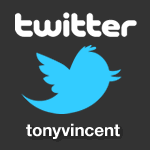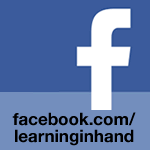Resistance to New Learning Tools
 Thursday, February 9, 2006 at 3:52PM
Thursday, February 9, 2006 at 3:52PM  People have always resisted new technologies in education. Here are some interesting quotes from the past:
People have always resisted new technologies in education. Here are some interesting quotes from the past:
“Students today can’t prepare bark to calculate their problems. They depend on their slates, which are more expensive. What will they do when the slate is dropped and it breaks? They will not be able to write.” (Teachers Conference, 1703)Like the technologies above, detractors have also pooh-pooh the idea of handhelds in classrooms because students will drop, lose, or abuse them. Students might cheat with them, forget to charge them, be distracted by them, or depend upon them too much.“Students today depend upon paper too much. They don't know how to write on slate without getting chalk dust all over themselves. They can't clean a slate properly. What will they do when they run out of paper?" (Principal's Association, 1815)
“Students today depend on these expensive fountain pens. They can no longer write with a straight pen and nib. We parents must not allow them to wallow in such luxury to the detriment of learning how to cope in the real business world which is not so extravagant.” (PTA Gazette, 1914)
"Students today depend upon store bought ink. They don't know how to make their own. When they run out of ink they will be unable to write words or ciphers until their next trip to the settlement. This is a sad commentary on modern education." (The Rural American Teacher, 1929)
"Ballpoint pens will be the ruin of education in our country. Students use these devices and then throw them away. The American virtues of thrift and frugality are being discarded. Business and banks will never allow such expensive luxuries." (Federal Teacher, 1950)
Doug Johnson wrote an editorial for February's Leading & Learning with Technology. A Proposal for Banning Pencils makes the case to rid an important educational technology, the pencil. Doug then notes the absurdity of the argument to ban pencils from schools and relates it to how crazy it is to ban items like blogs, laptops, and handhelds. The abuse of a thing is no arguement against its use. He writes:
My experience is that the more familiar educators are with a new technology, the less likely they are to restrict its use by students. When we old-timers experience a technology’s benefit ourselves, the more we understand its benefit to students.Besides resistance to simply allowing the technology in the school building, there's resistance to changing teaching practice to use new learning tools. TechLearning's Professional Development QuickTip Changing Teaching Practice presents stages of concern. Teachers pass through seven phases in their journeys to improve their teaching. The QuickTip explains how to support teachers in each of the stages:
Awareness > Informational > Personal > Management > Consequence > Collaboration > RefocusingDespite an array of excuses for not using handhelds, understanding these stages may help you or others you know put today's digital tools to good use instead of banning them.






Reader Comments (2)
Another great post Tony! I've seen those quotes before, but didn't bookmark them. Now I'll be able to use them in future PD sessions.
The 7 phases in TechLearning's quick tip reminds me of the Apple Classrooms of Tomorrow findings: "Teachers go through different stages when applying technology to teaching and learning—from entry and adoption to innovation." (http://www.apple.com/education/apd/)
Great info Tony! Those are hilarious. I heard the former Maine Governor Angus King speaking about how absurd it would be to be to take kids to a pencil lab. He relates computers to pencils and that every student should be using them whenever they need them, not just for a set 45 minutes each week.